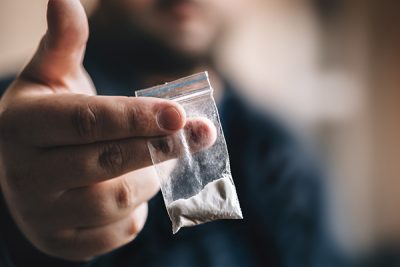
Cocaine is one of the most commonly used central nervous system stimulant drugs in the United States, known for its high potential for addiction. Like prescription drugs, cocaine is most often used by people who have already experimented with some drugs and are stepping into the world of harder drugs. A young person who uses cocaine almost always requires some form of substance abuse treatment to recover from their substance use disorder.
It only takes a few uses of this substance for cocaine addiction to become a problem. Cocaine use creates a feeling of euphoria in the cocaine abuser by increasing the frequency and concentration of the dopamine into the brain’s reward center. This action on the brain’s reward center combined with cocaine’s notoriously short-lived high causes cocaine users to crave more of the drug. Repeated use leads to tolerance for the drug, which places individuals on the path to cocaine addiction. Luckily, the National Institute on Drug Abuse’s Cocaine Research Report finds that among both teens and young adults has been steadily dropping in recent years.
The Cornerstone Program is a Denver based drug treatment facility that is equipped to treat cocaine addiction or other drug addictions in young people and help them to get and stay sober. For a free evaluation of your situation and direction on the next best steps to take, please contact our drug rehab center or give us a call today at 303-690-0082.
Cocaine Addiction: Common Forms and Methods of Use
Cocaine is typically a white powder that comes in small baggies or balloons. The most common method of cocaine abuse is to snort a powder into the nose. In this instance, the drug enters the bloodstream through the mucus membranes in the nose. This is usually done from a smooth flat surface using a rolled-up bill or a straw. Other methods and forms of cocaine include:
- Injection – Cocaine is mixed with water and then injected directly into the bloodstream. This results in a shorter, stronger high. Injecting cocaine, or any substance, is extremely dangerous; cocaine addicts who inject should seek addiction treatment immediately.
- Smoking – Cocaine can be further processed into crack cocaine. This is smoked using pipes or through ‘free-basing’, a method where crack is heated up on foil and the smoke is inhaled with a straw. This method produces an incredibly intense, short high that is infamous for leading to cocaine addiction on the first use.
The Effects of Cocaine Addiction on the Body and Mind
The short-lived nature of a cocaine high means that people, especially younger folks, are more likely to engage in repeated use. Frequent use leads to tolerance for the drug extremely quickly (increasing the amount used over time). This is incredibly precarious and can quickly lead to an overdose. The short- and long-term effects of cocaine can include:
- Nosebleeds and loss of smell
- Anger and irritability
- Paranoia
- Lack of appetite
- Convulsions or seizures
- Damage to lungs, stomach, nose, and throat (depending on method of use)
- Increased risk of heart attack
- Problems with the respiratory system
- Deteriorated mental health
As discussed elsewhere on our site, the reason this repeated use is so dangerous for teenagers and young adults is because drug use stifles activity in the portions of their brains that are still developing through their mid-twenties. If you or someone you love is struggling with cocaine addiction, it is important to remember that help is available.
Cocaine Overdose, Dependence, and Withdrawal
According to the CDC, cocaine overdose can be fatal and was was involved in 19.8% of drug overdose deaths in the United States in 2017. Symptoms of cocaine overdose include tremors, seizures, nausea / vomiting, and pain in the chest.
Cocaine is and addictive drug and leads to dependence in many individuals. The primary symptom of cocaine dependence is an intense craving for more of the drug. Cocaine withdrawal can be very unpleasant, but doesn’t generally require a medical detox unless other drugs of abuse are involved (such as heroin or alcohol. Symptoms of cocaine withdrawal include:
- Difficulty concentrating
- Depression
- Anxiety
- Anhedonia (inability to feel pleasure)
- Chills, tremors, muscle aches
- Cravings for cocaine
The Cornerstone Program Can Help you Beat Cocaine Addiction
Signs of cocaine addiction include restlessness, loss of appetite, talkativeness, and possession of paraphernalia such as pipes, mirrors, or straws. Recovering from cocaine addiction may not necessarily require a medical detox, but it is recommended that you or your loved one seek help right away.
At The Cornerstone Program, we understand how hard addiction can be on all involved. As the leading young adult and teen substance abuse treatment center in Denver, CO, we are here to help. If you or a loved one is struggling with addiction, call us today at 303-690-0082 or contact our drug rehab center for a free evaluation of your situation and a recommendation on the next steps to take.
